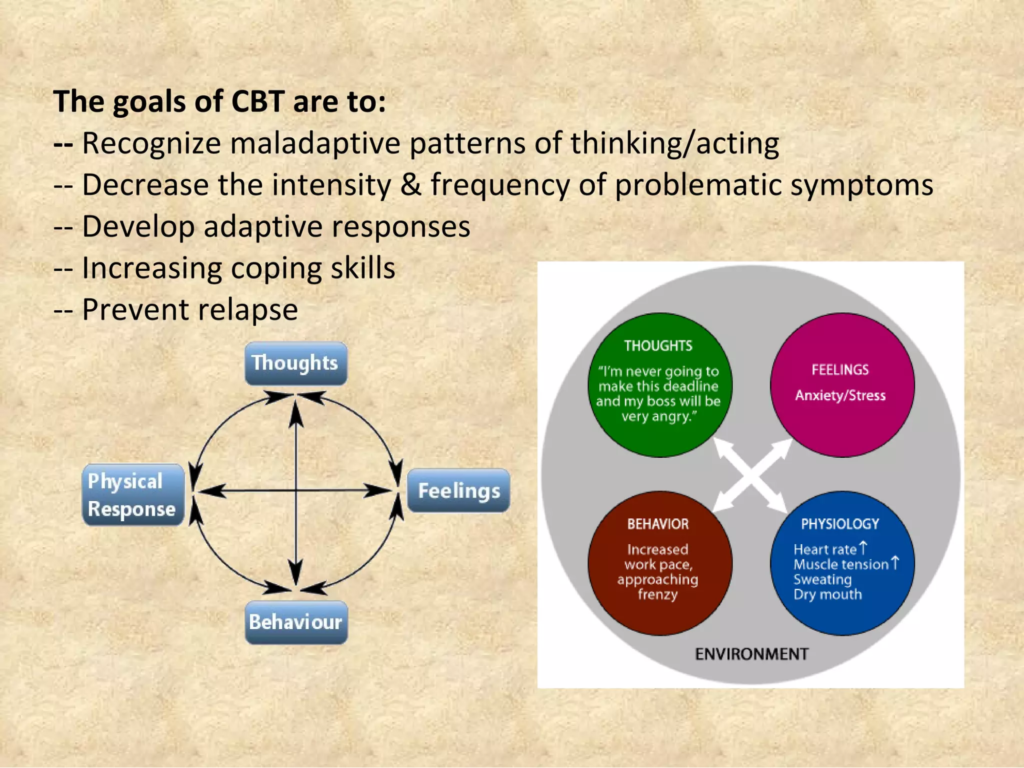loading...

by Tim Cassidy | Sep 27, 2024 | Educational
Solution-Focused Therapy (SFT) has gained popularity for its practical approach and positive outcomes. It’s a model many therapists find effective because it emphasizes clients’ strengths and future goals instead of diving deep into their past issues. If you’re not familiar with SFT, head over to the course section to learn more about the intervention.
As with any therapeutic approach, SFT has limitations every therapist should be aware of to ensure they’re using it effectively and ethically.
Overemphasis on limitations of solution focused
One of the main strengths of SFT is its focus on short-term solutions. This can be incredibly empowering for clients who want immediate change and have clear, attainable goals. However, this emphasis can be a double-edged sword. Clients dealing with complex trauma, chronic mental health issues, or deep-seated relational problems may need more than just a set of short-term goals to find relief. They might require a therapeutic process that allows for exploration of past experiences, emotions, and the underlying causes of their struggles.

Practitioners might find themselves in a tricky position when clients bring up issues that don’t neatly fit into the solution-focused model. It can be challenging to address these concerns without veering off course. For some, this may lead to frustration or feelings of inadequacy if their problems aren’t ‘solved’ within the expected timeframe.
As a result, you should be flexible. Understanding when to incorporate elements from other therapeutic models or even referring the client to a different specialist, can be crucial.
Ignoring the Role of Past Experiences
While SFT is built on the premise that focusing on the present and future is more productive than dwelling on the past, the past also plays a significant role in shaping a person’s present behaviors and thoughts. Ignoring this can sometimes do a disservice to clients who need to process their history to move forward.
For example, a client who has experienced childhood trauma may find it difficult to engage in the solution-focused process because their coping mechanisms and perceptions are deeply rooted in past experiences. In such cases, it’s not enough to simply set goals for the future; these clients might benefit from exploring how their past has influenced their current situation.
Challenges With Certain Client Populations
SFT can be effective with clients who are motivated to change and have a clear idea of what they want to achieve. However, not all clients come into therapy with this mindset. Those who are ambivalent about change or who struggle to articulate their goals, may find this approach less beneficial.
For example, adolescents or individuals mandated to attend therapy might not be in a place where they can easily identify solutions or set goals for themselves. They may need a more exploratory approach to understand their motivations and to feel invested in the therapeutic process. Therapists need to be prepared to adapt their strategies and perhaps integrate other therapeutic techniques to engage these clients effectively.
Risk of Oversimplification
Another limitation of SFT is the risk of oversimplifying complex problems. Encouraging clients to identify solutions and set goals is valuable, but it may overlook the multifaceted nature of their issues. For instance, someone struggling with depression might benefit from setting small, achievable goals. But if the root cause of their depression is not addressed, those goals may not lead to long-lasting change.
There is also a risk of invalidating clients’ experiences by focusing too much on solutions. If a client feels their struggles are being minimized, they might shut down or disengage from the process altogether. This is particularly true for those who feel overwhelmed by their problems and need a space to feel heard and understood before they can think about solutions.
Cultural Sensitivity Considerations
Therapists also need to be mindful of cultural factors when applying SFT. In some cultures, individuals that come from a background that values collectivism over individualism.
may not focus on their own strengths or setting personal goals.
They might struggle with the concept of setting goals that prioritize their own needs over those of their family or community. In these cases, practitioners need to be culturally sensitive and adapt their approach to fit the client’s worldview. You can incorporate family- or community-oriented goals into the therapy process.
Situations Requiring a Different Therapeutic Approach
There are scenarios where SFT might not be the best fit at all. Clients experiencing severe mental health issues like psychosis, active suicidal ideation, or substance dependency may need a more structured and intensive intervention. While SFT could be an alternative to other forms of therapy, relying solely on it in these situations could be inadequate and even harmful.
Therapists must assess each client’s needs and determine whether SFT alone can provide the support required. Integrating elements of cognitive-behavioral therapy, dialectical behavior therapy, or even psychodynamic approaches might be necessary depending on the client’s presentation.
The Importance of Therapist Flexibility
For therapists, being rigidly adherent to any one model can be limiting. SFT offers valuable tools, but it should be seen as part of a broader therapeutic toolkit. Flexibility is essential to meet clients where they are and to tailor the therapeutic process to their specific needs.
For example, a therapist might begin with a solution-focused approach to build rapport and help the client gain some quick wins. As therapy progresses, and the client’s needs evolve, the therapist can then introduce other techniques and approaches. The goal is to address underlying issues, build emotional regulation skills, or resolve cognitive distortions.
Practical Application in Diverse Settings
Therapists working in community mental health settings, schools, or with populations that have limited access to ongoing therapy might find SFT useful. Its brief nature allows for meaningful progress in a shorter time, which can be a huge benefit in settings where long-term therapy is not an option.
However, this again highlights the importance of recognizing when SFT may not be sufficient. For example, school counselors using SFT with students might find that it works well for those dealing with minor behavioral issues but falls short for students coping with significant family dysfunction or trauma. Here, collaboration with other mental health professionals and a willingness to adjust the therapeutic approach can make a big difference.
Integrating SFT With Other Models
One of the best ways to overcome the limitations of SFT is to integrate it with other therapeutic models. For instance, combining SFT with elements of narrative therapy can help clients reframe their stories in a way that complements the solution-focused approach. Similarly, integrating mindfulness techniques can help clients stay present and grounded while they work on their goals.

Therapists should feel empowered to use SFT as a foundational approach, while also drawing on their knowledge of other models to provide a richer, more personalized therapeutic experience. This integrative approach not only respects each client’s uniqueness but also enhances the therapy’s effectiveness by addressing multiple aspects of the client’s experience.
Conclusion: Let Online CE Credits Enhance Your Practice
Solution-Focused Therapy offers a valuable approach for many clients, but it’s not a one-size-fits-all solution. Understanding its limitations is crucial for therapists to use it effectively and ethically. By recognizing when and how to adapt or integrate other approaches, therapists can provide the most appropriate support for each client’s unique needs.
The flexibility and awareness lead to successful outcomes and meaningful therapeutic change. Take a bold step and sign up for an account to stay ahead of the curve in mental health.

by Tim Cassidy | Sep 17, 2024 | Educational
Family reintegration therapy is a therapeutic process that supports the reunification of individuals with their families after a prolonged separation due to military service, incarceration, or other life events. This therapy offers a guided approach to addressing the emotional, psychological, and social challenges that come with reintegration.
The benefits of this therapy extend far beyond just the individual returning home. It also significantly impacts family dynamics, communication, and long-term stability. Understanding its importance can provide families and mental health professionals with the tools needed to foster healing and create stronger, healthier relationships.
The Unique Challenges of Reintegration
Returning home is often portrayed as a joyous event, but the reality can be far more complex. For military personnel, the transition from a highly structured environment back into family life can feel disorienting.
On the other hand, ex-offenders face the stigma of their past, potential legal constraints, and the difficulty of reconnecting with family members who may have felt abandoned or betrayed. In both scenarios, the emotional toll can be significant.

Family members who remained at home during these separations also face unique stressors. Spouses often take on dual roles, managing both parenting and household duties. Children may struggle with feelings of confusion or resentment, and extended family members may experience a range of emotions, from relief to anxiety.
Reintegration therapy helps to bridge these emotional gaps, fostering understanding and empathy among all parties involved.
Enhance Your Family Reintegration Therapy With Online Courses
A study on the family systems approach to attachment relations, war trauma, and mental health concluded that any therapeutic intervention must involve every family member. This can result in complete healing for the whole family.
As a result, Online CE Credits has a diverse and rich program for therapists dealing with ex-veterans, ex-offenders, dysfunctional families, and bitter couples. Ready to polish your knowledge of reunification therapy? Enroll in the courses below:
Core Principles of Family Reintegration Therapy
Family reintegration therapy is built on several key principles, all aimed at promoting a smoother transition back into family life. These principles guide the therapy process and provide a foundation for healing:
Open Communication: The therapy sessions focus on fostering open and honest dialogue among family members. Facilitating a space where each person feels heard is vital for rebuilding trust and understanding.
Understanding Individual Experiences: Each family member has a unique perspective shaped by their experiences during the separation. Therapy helps everyone understand these perspectives, including the returning individual’s experiences and the challenges faced by those who stayed behind.
Establishing New Family Norms: Reintegration often means adjusting to new dynamics within the family. What worked before may no longer be applicable, and therapy assists in creating new, healthy patterns of interaction.
Building Emotional Resilience: Addressing the emotional wounds that separation can cause is critical. Therapy provides tools to build emotional resilience and manage conflicts that may arise during the reintegration process.
Addressing Trauma: For military families, trauma may come in the form of PTSD or anxiety from combat experiences. For ex-offenders, there may be unresolved trauma from prison experiences or the events that led to incarceration. Addressing these traumas in a family setting can be healing for everyone involved.
Military Families: Navigating the Road Back to Connection
For military families, reintegration can be a period of great emotional upheaval. Service members returning from deployment may struggle with post-traumatic stress disorder (PTSD), depression, or anxiety, which can affect their ability to reconnect with family members. Reunification therapy offers a structured way to deal with these issues.
Understanding PTSD in the Family Context: When a family member returns home with PTSD, it doesn’t just affect the individual; it affects the entire family unit. Therapy sessions may include education on PTSD, allowing family members to understand the condition better and develop supportive strategies.
For example, a spouse may learn grounding techniques to help a partner through a flashback, while children may learn how to recognize signs of distress and respond appropriately.
Reestablishing Parenting Roles: Deployment often disrupts traditional parenting roles. Reintegration therapy helps parents gradually adjust back into their roles without overwhelming themselves or their children. A returning parent may need guidance to avoid imposing rigid military discipline at home, while the parent who stayed behind may need to learn to share responsibilities again.
Couples’ Challenges: Reintegration can put a strain on romantic relationships. Couples may find that they have grown apart or developed different coping mechanisms during the separation. Therapy provides a neutral ground to explore these changes and find ways to reconnect.
Ex-Offenders: Rebuilding Trust and Connection
The path to reintegration for ex-offenders can be particularly fraught with challenges. The stigma of incarceration, coupled with legal restrictions and societal expectations, can make it difficult for families to fully welcome back their loved ones. Reunification therapy can help by providing a framework for rebuilding trust and restoring relationships.
Addressing the Stigma of Incarceration: One of the first steps in family reintegration therapy for ex-offenders is addressing the stigma associated with incarceration. Family members may harbor feelings of shame, embarrassment, or distrust. Therapy creates a safe space to explore these feelings and work toward forgiveness and understanding.
Repairing Broken Bonds: Many ex-offenders come home to find that their relationships with their children, spouses, or parents have been deeply affected by their absence. Reintegration therapy helps in understanding the impact of separation and developing practical steps to repair these bonds. These include setting realistic expectations, developing healthy communication skills, and creating new family traditions.
Learning New Coping Skills: Life outside of prison can feel overwhelming, especially when trying to reintegrate into family life. Therapy offers tools for managing stress, dealing with triggers, and navigating potential conflicts. This is particularly important for families to avoid falling back into old, potentially harmful patterns.
Practical Steps for Successful Reintegration
For families undergoing reintegration therapy, there are several practical steps that can support the process:
Create a Structured Plan: Having a plan in place for reintegration can help manage expectations. This could involve setting short-term and long-term goals for the family as a whole, as well as for individual relationships.
Establish Regular Family Meetings: These meetings provide a consistent space for family members to discuss their feelings, celebrate progress, and address any challenges. Regular communication is key to maintaining momentum in the reintegration process.
Utilize Community Resources: Many communities offer support groups, educational programs, and resources specifically for military families and families of ex-offenders. Engaging with these resources can provide additional support and validation.
Focus on Strengths: Reintegration is not just about addressing problems but also recognizing the strengths that each family member brings to the table. Strength-based approaches in therapy help families build on their positive qualities and develop resilience together.
Practice Patience and Empathy: Reintegration is a journey, not a one-time event. It requires ongoing patience, empathy, and flexibility from all family members. Therapy can teach families how to develop these skills and maintain them over time.
The Role of the Therapist
Therapists play a crucial role in the reintegration process, acting as guides and mediators. They provide the structure necessary for open communication, help identify underlying issues, and equip families with the skills needed to move forward.
Practitioners with experience in trauma, military culture, or the criminal justice system are often better equipped to understand the unique challenges these families face.
Long-Term Benefits of Reintegration Therapy
The benefits of successful family reintegration therapy extend far beyond the immediate challenges. Over time, families can experience stronger bonds, improved communication, and a deeper understanding of each other’s experiences.

For military families, it can mean building a supportive environment that helps manage the long-term effects of service. For families of ex-offenders, it can mean breaking cycles of behavior and building a foundation for a more positive future.
Adopt Family Reintegtration Therapy Strategies To Heal Broken Families
Family reintegration therapy is a critical component of recovery and healing for both military families and ex-offenders. The unique challenges faced by these families require a thoughtful and structured approach that prioritizes open communication, empathy, and emotional resilience.
The therapeutic process enables families to rebuild trust, develop new patterns of interaction, and move forward together on a path of mutual understanding and support. Professionals in mental health must understand family reintegration’s importance and intricacies so they can provide the best therapy.
Online CE Credits is a go-to resource for therapist-managed courses available online 24/7 at affordable prices. Sign up for an account to advance your professional development in family reintegration therapy.

by Tim Cassidy | Sep 17, 2024 | Educational
Neuropsychotherapy is a rapidly developing field that bridges the gap between neuroscience and psychotherapy. By integrating findings from brain science, this approach offers more effective interventions for mental health issues. For therapists and counselors seeking new ways to enhance their practice, understanding these emerging techniques is essential.
Let’s explore some of the most promising approaches within neuropsychotherapy and how they can be applied to support clients more effectively.
The Basics of Neuropsychotherapy
At its core, neuropsychotherapy focuses on how psychological processes are rooted in brain function. It combines insights from neuroscience with psychotherapeutic techniques. And it allows practitioners to work with the brain’s natural tendencies rather than against them. This makes therapy more efficient and tailored to individual needs.

For example, neuropsychotherapy might use knowledge about neural plasticity—the brain’s ability to reorganize itself by forming new neural connections throughout life. This understanding allows therapists to create interventions to harness the brain’s capacity for change. As a result, this offers clients a path to healing that aligns with their brain’s natural processes.
Ramp Up Your Skills in Neuroscience Therapy
Imagine you could earn nearly 30 credits in just 72 hours! It’s a possible goal, thanks to Online CE Credits’ online courses in neuroscience available 24/7. These accredited programs grant you access to passionate and seasoned instructors. They help you apply the lessons instantly.
Upgrade your continuing education by enrolling in the programs below:
Using Neuroplasticity for Healing
One of the most compelling aspects of neuropsychotherapy is neuroplasticity. Traditional therapy often focuses on managing symptoms, but neuropsychotherapy takes it a step further by directly targeting the underlying neural pathways that contribute to emotional and behavioral patterns.
Consider how trauma impacts the brain: traumatic experiences can lead to deeply ingrained neural circuits that perpetuate anxiety, hypervigilance, or depressive states. Techniques like Eye Movement Desensitization and Reprocessing (EMDR) and somatic therapies work by helping clients create new, healthier neural pathways.
These methods encourage the brain to ‘rewire’ itself, reduce the emotional intensity of traumatic memories, and decrease retraumatization.
Therapist Insight: “I’ve found that incorporating techniques that tap into neuroplasticity, like EMDR, often leads to quicker breakthroughs for clients who have felt stuck in traditional talk therapy.”
Emotional Regulation through Mindfulness and Meditation
Mindfulness and meditation aren’t new concepts, but their integration into neuropsychotherapy has brought a fresh perspective. Regular mindfulness practice can alter brain structures and functions, particularly in areas related to emotion regulation, stress response, and self-referential processing.
Neuroimaging studies have shown that consistent mindfulness practice thickens the prefrontal cortex. It’s a brain area that is involved in planning, problem-solving, and emotional regulation. Also, the therapy shrinks the amygdala, the brain’s fear center.
This physiological change can be incredibly powerful for clients struggling with anxiety, PTSD, or chronic stress. By helping clients understand how mindfulness affects their brain, therapists can motivate them to adopt practices that facilitate emotional regulation and mental clarity.
The Role of Memory Reconsolidation in Therapy
Memory reconsolidation is another innovative technique in neuropsychotherapy. When a memory is recalled, it becomes malleable and can be altered before it is stored again. This process allows therapists to work with clients to ‘update’ distressing memories with new, less threatening information.
For instance, a person with social anxiety may have an entrenched memory of a humiliating experience that triggers anxiety in social settings. Through memory reconsolidation techniques, therapists can help the client recall the memory in a safe therapeutic environment.
They can also introduce new emotional experiences that contradict the distressing aspects of that memory. This can significantly reduce the emotional charge of the memory, leading to decreased symptoms in the client’s everyday life.
Therapists can use techniques such as imaginal exposure or integrating contradictory positive memories to alter the emotional weight of a traumatic memory.
The Power of Neurofeedback
Neurofeedback is a therapeutic technique that offers clients real-time feedback on their brainwave activity, helping them learn how to self-regulate their mental states. By monitoring brain activity through EEG and displaying it visually, clients can see how their thoughts and emotions affect their brain. This empowers them to learn techniques to shift their mental states.
This method is particularly useful for conditions like ADHD, PTSD, anxiety, and depression. Neurofeedback has been shown to help clients achieve a state of relaxed focus, which can be difficult to attain in a traditional therapeutic setting.
Over time, neurofeedback enables clients to gain greater control over their brainwave patterns, leading to more sustainable emotional and cognitive regulation.
The Integration of Somatic Approaches
Neuropsychotherapy also recognizes the critical connection between the mind and body. Somatic approaches emphasize the importance of body awareness and the physical experience of emotions. Since the brain and body are interconnected, working with bodily sensations can directly affect brain processes.
Approaches like Somatic Experiencing (SE) or Sensorimotor Psychotherapy focus on helping clients tune into their body’s sensations to release trauma stored at the physiological level. By allowing clients to feel safe in their bodies. These methods can facilitate a deeper healing process for those struggling to articulate their emotions verbally by allowing clients to feel safe in their bodies.
You can consider incorporating somatic exercises like grounding or deep breathing to help clients who may be dissociated or disconnected from their physical experience.
The Application of Polyvagal Theory
Polyvagal Theory, developed by Dr. Stephen Porges, has gained traction in the field of neuropsychotherapy. It describes how the autonomic nervous system responds to safety and danger cues. Understanding these responses can guide therapists in helping clients move from a state of threat (fight, flight, or freeze) to a state of safety and connection.
By helping clients identify when they are in a state of hyperarousal (fight or flight) or hypoarousal (freeze), therapists can employ techniques to bring them back into a “window of tolerance.” This lets them process emotions and experiences more effectively.

The therapy involves grounding exercises, breathwork, or paced rhythmic activities that help regulate the nervous system. Encourage clients to develop a “toolbox” of strategies that help them recognize and shift their nervous system state to improve emotional regulation and resilience.
Integrating Technology and Virtual Reality
Virtual reality (VR) is a cutting-edge tool that has begun to find its place in neuropsychotherapy. VR allows clients to experience controlled simulations of situations that trigger anxiety or trauma. This exposure, combined with real-time therapist guidance, can be highly effective in reducing symptoms and improving emotional resilience.
For example, VR can simulate social situations for clients with social anxiety, allowing them to practice social skills in a safe environment. Similarly, clients with PTSD can use VR to gradually confront traumatic memories with the support of their therapist. This reduces the emotional impact of these memories over time.
Studies have shown that VR-based interventions can significantly improve outcomes for clients with PTSD, anxiety, and specific phobias. As a result, it can provide a safe yet immersive space for exposure therapy.
Tailoring Techniques To Individual Clients
Every brain is unique, and what works for one client may not work for another. This is why a personalized approach is essential in neuropsychotherapy. Therapists must be attuned to the specific needs, preferences, and neurobiological makeup of each client to select the most appropriate interventions.
Combining techniques such as mindfulness, neurofeedback, memory reconsolidation, and somatic therapy allows for a flexible approach adaptable as the client progresses. The key is to remain curious and open to integrating new, evidence-based techniques as they become available.
Embrace Neuropsychotherapy To Transform Your Therapy
Neuropsychotherapy is more than just a trend; it’s a new way of understanding the brain and how it relates to emotional and mental health. By embracing these innovative techniques, therapists can provide more effective and tailored care, helping clients not just to cope but to thrive.
Rewiring the brain through neuroplasticity, using mindfulness, or cutting-edge technology like virtual reality can transform how we think about healing the mind. Ready to move the needle in your clinical practice? Sign up for an account now!

by Tim Cassidy | Sep 17, 2024 | Educational
When considering the best approach to therapy, many mental health professionals are often caught between different modalities. Traditional therapies, such as Cognitive Behavioral Therapy (CBT), psychodynamic therapy, and person-centered approaches, have been a cornerstone of mental health treatment for decades.
However, as neuroscience advances, neuropsychotherapy has gained attention for its emphasis on understanding and healing the brain’s functioning directly. This method considers how our brain’s neural pathways and structures influence mental health and utilizes this knowledge in therapy sessions.
Let’s examine what neuropsychotherapy offers compared to traditional therapy methods and why this emerging field might represent a shift in treating psychological issues.
Understanding Traditional Therapy: A Focus on Mind and Behavior
Traditional therapy involves various approaches that help individuals understand their thoughts, emotions, and behaviors to promote healthier patterns. Here’s a quick look at some well-known types of traditional therapy:
Cognitive Behavioral Therapy (CBT): Perhaps the most widely practiced traditional therapy, CBT helps clients identify and challenge distorted thoughts and beliefs that lead to unhealthy behaviors and emotional distress. The emphasis is on the present moment and developing coping strategies to manage life’s challenges.

Psychodynamic Therapy: This approach dives into the unconscious mind, exploring how early life experiences and internal conflicts influence current behavior. Therapists using this model enable clients to uncover hidden emotions and unresolved conflicts that might contribute to their distress.
According to the American Psychology Association (APA), psychodynamic interventions are effective to treat stress-related physical conditions, anxiety, depression, and pain.
Humanistic Therapies: Approaches like person-centered therapy focus on self-exploration and self-acceptance. The therapist’s role is to provide a non-judgmental space where clients can express themselves freely and work toward personal growth.
Each of these therapies operates under the belief that changes in thoughts, emotions, and behaviors can significantly impact a person’s mental health and overall well-being. However, they often fall short in addressing the biological basis of mental health conditions. This is where neuropsychotherapy steps in.
What Is Neuropsychotherapy? An Integration of Neuroscience and Psychology
Neuropsychotherapy is an approach that integrates findings from neuroscience into the therapeutic process. At its core, it states that understanding the brain’s functions can help better address mental health issues.
Traditional therapy often focuses more on the cognitive or emotional aspects of a person’s problems. On the other hand, neuropsychotherapy looks at how neural networks and brain structures shape thoughts, emotions, and behaviors.
Here are some key features that set neuropsychotherapy apart:
Brain-Based Understanding: Neuropsychotherapy relies heavily on insights from neuroscience to understand how different brain areas affect mental health conditions.
A neuropsychotherapist might approach treatment by considering how the amygdala affects fear and anxiety, the prefrontal cortex influences decision-making, and the hippocampus affects memory and learning.
Neuroplasticity and Healing: This approach focuses on the concept of neuroplasticity—the brain’s ability to reorganize itself by forming new neural connections throughout life. Neuropsychotherapy aims to utilize this capacity for change to help clients form healthier patterns of thought, behavior, and emotion.
Integrated Techniques: Neuropsychotherapy does not reject traditional therapeutic techniques. Instead, it integrates them with a neuroscience-based understanding. For instance, neuroscience may incorporate mindfulness by focusing on its impact on brain structures like the anterior cingulate cortex. This brain element is associated with self-regulation and emotional processing.
Renew Your Therapy To Treat Mental Health Conditions With Neuropsychotherapy
The British Pyschology Society also agrees that brain areas such as the amygdala, hippocampus, and related neural networks are critical in treating PTSD. For this reason, a course in neuropsychology can be a game changer for therapists. It uncovers the latest and most effective methods to heal trauma patients.
Thankfully, Onlince CE Credits offers actionable online courses to enable mental health professionals to stay ahead of the curve. Here are some programs to consider:
Key Differences: How Neuropsychotherapy and Traditional Therapy Differ in Practice
While both neuropsychotherapy and traditional therapy aim to alleviate psychological distress, their methods and underlying principles differ significantly.
Focus on Brain vs. Mind: Traditional therapy often focuses on the “mind”—thoughts, beliefs, and emotions. However, neuropsychotherapy directs attention to the “brain”—neural networks, neurotransmitters, and neuroplasticity. This difference might seem subtle but has profound implications for treatment.
A neuropsychotherapist might explore how repeated experiences (like trauma) have wired the brain in specific ways and then use interventions that specifically aim to “rewire” these patterns.
Role of Science: In neuropsychotherapy, scientific insights about brain functioning are integral to the treatment process. Techniques such as biofeedback, neurofeedback, and brain mapping provide clients with real-time information about their brain activity. This scientific basis can help demystify mental health issues for clients, making them feel more in control of their healing process.
Treatment Customization: Traditional therapy often relies on standardized approaches or protocols that apply broadly across various populations. In contrast, neuropsychotherapy customizes an approach that considers each client’s unique neurological makeup, personal history, and how the brain has adapted to experiences.
Case Example: Applying Neuropsychotherapy and Traditional Therapy in Practice
To better understand the difference in these approaches, consider the case of a client named Sarah, a 32-year-old woman struggling with anxiety and panic attacks.
Traditional Therapy Approach: In a traditional therapeutic setting, a CBT therapist might work with Sarah to identify triggers for her panic attacks and develop strategies to challenge irrational thoughts or avoidant behaviors. The emphasis would be on restructuring her thought patterns and exposing her to anxiety-provoking situations gradually to reduce fear.
Neuropsychotherapy Approach: A neuropsychotherapist might start by explaining how Sarah’s brain has been conditioned to respond to stress with panic due to repeated activation of the amygdala. Using techniques like mindfulness and neurofeedback, they might help Sarah learn to regulate her brain’s activity. This increases connectivity between the amygdala and the prefrontal cortex.
The focus would be on “rewiring” the brain’s pathways to create more adaptive responses to stress.
Both approaches can be effective, but neuropsychotherapy may provide Sarah with insight into anxiety’s biological basis. In this way, she might be empowered to make progress in her recovery.
When to Consider Neuropsychotherapy Over Traditional Therapy
Mental health professionals might consider neuropsychotherapy when traditional methods seem to be less effective. Or when clients express an interest in understanding the brain-based aspects of their conditions. Here are some scenarios where neuropsychotherapy might be particularly beneficial:
Trauma and PTSD: Trauma can have lasting effects on the brain’s structure and function, often leading to hyperarousal, flashbacks, and emotional dysregulation. Neuropsychotherapy can provide specific interventions aimed at calming the overactive amygdala and strengthening the connections between the emotional and rational parts of the brain.
Chronic Anxiety and Depression: These conditions are often associated with long-term changes in brain chemistry and structure. Neuropsychotherapy can help clients understand these changes and use brain-based strategies to foster recovery.
Neurodevelopmental Disorders: For conditions like ADHD or Autism Spectrum Disorder, where neurological differences play a significant role, neuropsychotherapy can offer strategies that are more aligned with the client’s neurobiological profile.
Interest in a Science-Based Approach: Some clients are drawn to the idea of therapy that is grounded in the latest scientific research. Neuropsychotherapy can appeal to those who want to see concrete evidence of change and understand the mechanisms behind their mental health struggles.
Challenges and Considerations in Neuropsychotherapy
While neuropsychotherapy offers promising possibilities, it is not without its challenges. One of the most significant barriers is for therapists to have a solid understanding of neuroscience. And this requires ongoing education and training.

This approach also involves tools like neurofeedback and brain mapping, which can be costly and inaccessible to all clients or practices.
Additionally, some critics argue that neuropsychotherapy might overemphasize mental health’s biological aspects. As a result, therapists may neglect the therapeutic relationship and socio-cultural factors that affect mental health.
However, many professionals argue that integrating these elements rather than viewing them as mutually exclusive is crucial.
The Future of Therapy: A Combined Approach?
As neuroscience continues to change, the boundaries between different therapeutic approaches may become increasingly blurred. It may be possible to integrate traditional therapy with neuro-psychotherapeutic methods in the future.
By incorporating brain-based knowledge into traditional therapy, mental health professionals can offer clients richer, more tailored therapeutic experiences.
For mental health practitioners, understanding both approaches’ strengths and limitations can open up new avenues for more personalized, effective care.
Cash in on Neuropsychotherapy Courses
Neuropsychotherapy represents an exciting development in the field, providing new tools and perspectives for healing the brain and mind. Also, the client’s needs, preferences, and specific conditions and the therapist’s training and expertise determine whether the method is suitable.
As we continue to learn more about the brain and its impact on mental health, the potential to refine and expand these therapeutic methods offers hope for more effective treatment outcomes. Online CE Credits allows you to upgrade yourself and earn relevant credits without breaking the bank. Invest in your professional development today.

by Tim Cassidy | Sep 3, 2024 | Educational
Insomnia has become an increasingly common issue, with an estimated 33% of adults experiencing short-term issues and 10% dealing with chronic insomnia. While conventional treatments like cognitive-behavioral therapy for insomnia (CBT-I) and medication can be effective, there are times when these approaches may not fully address the underlying issues keeping clients awake. That’s where Eye Movement Desensitization and Reprocessing (EMDR) comes in—a therapeutic method traditionally associated with trauma but now showing promise in treating insomnia.
Want to beat insomnia in your therapy? Consider enrolling in a nationally approved EMDR certification, a therapist-managed program with 28 credits.
Connecting Trauma and Sleep
It’s not uncommon for mental health professionals to encounter clients who struggle with both trauma and sleep disturbances. Trauma can disrupt the nervous system, leading to heightened arousal and an inability to wind down. The connection between trauma and sleep problems is well documented, with many individuals reporting that nightmares, flashbacks, and anxiety keep them from getting the rest they need.
EMDR is known for its ability to process traumatic memories, which often play a role in maintaining insomnia. When clients are stuck in a loop of hyperarousal, their sleep patterns can be significantly disrupted. This constant state of alertness, even during what should be a restful period, is where EMDR can make a significant difference. By targeting the root cause—often traumatic memories or distressing experiences—EMDR can help to alleviate the symptoms of insomnia.

The Mechanism Behind EMDR and Insomnia Relief
At its core, EMDR works by facilitating the brain’s natural healing process. The therapy involves recalling distressing memories while the therapist guides the client through a series of bilateral eye movements or other forms of rhythmic stimulation. This process helps to reprocess these memories, reducing their emotional charge and the physiological responses they trigger.
For clients with insomnia, the memories or stressors keeping them awake might not always be what we traditionally categorize as trauma. It could be a range of experiences, from childhood fears to recent stressors. When these are effectively processed through EMDR, the hyperarousal that fuels insomnia can diminish, leading to better sleep.
Clients often report a noticeable decrease in the anxiety that accompanies bedtime, and some even experience an improvement in sleep quality after just a few sessions. This reduction in anxiety is critical, as it can interrupt the cycle of insomnia and start to establish healthy sleep patterns.
Practical Applications of EMDR for Insomnia
When considering EMDR for insomnia, it’s essential to identify the specific memories or stressors that might be linked to the client’s sleep issues. This requires a thorough intake process, where the therapist not only explores trauma history but also any recent life changes, ongoing stressors, and even childhood experiences that might be contributing to the insomnia.
Here’s how EMDR can be practically applied:
Assessment and Targeting:
Start with a comprehensive assessment to identify the memories or experiences that may be contributing to insomnia. This could include past traumas but also more subtle stressors like persistent worries or unresolved grief. It’s important to understand that these can be current, recent, or long-standing issues.
Customized Protocol:
Once these targets are identified, the therapist can create a customized EMDR protocol tailored specifically to the client’s sleep issues. While EMDR typically follows an eight-phase approach; the key here is to adapt the focus to the specific concerns that are most likely disrupting the client’s sleep.
Sleep Hygiene Integration:
Incorporate sleep hygiene education and practices into the treatment plan. While EMDR addresses the psychological barriers to sleep, practical strategies like establishing a consistent sleep routine, reducing screen time, and creating a calming pre-sleep environment can further enhance the treatment’s effectiveness.
Monitoring Progress:
Regularly assess the client’s sleep patterns and adjust the treatment as needed. Sleep diaries can be a helpful tool, allowing both the therapist and client to track improvements and identify any ongoing challenges.
Addressing Residual Anxiety:
Even after significant progress, some clients may continue to experience residual anxiety about sleep. In such cases, additional EMDR sessions can be beneficial to target any remaining stressors or anxieties that might be hindering full recovery.
Case Example: EMDR in Action
Consider a client named Lisa, who had been dealing with insomnia for over two years. Traditional therapy and medication provided limited relief, but the root cause of her sleeplessness remained unaddressed. During the intake process, Lisa revealed that her sleep issues began following a car accident. Although she had physically recovered, the emotional impact of the event lingered, causing her to wake up multiple times a night, often in a state of panic.
Lisa’s therapist identified the accident as a key target for EMDR. Through the sessions, they reprocessed the memory of the crash, reducing its emotional intensity. As the sessions progressed, Lisa noticed a decrease in her nighttime awakenings. Her pre-sleep anxiety diminished, and within a few weeks, she was able to sleep through the night more consistently.
Lisa’s case illustrates how EMDR can address the unresolved emotions that contribute to insomnia. By processing the traumatic memory, her nervous system was able to return to a more relaxed state, making restful sleep possible again.
Deepen Your Knowledge About Insomnia and Trauma

Enrich your understanding of insomnia and trauma with our expert-led courses. Our affordable programs offer comprehensive training on the latest evidence-based techniques. They empower you to treat clients struggling with these complex issues. Learn from experienced instructors below and gain the skills you need to make a lasting impact.
Beyond Trauma: EMDR’s Broader Application in Insomnia
While EMDR is often associated with treating trauma-related insomnia, its applications extend beyond these cases. Many clients experience insomnia due to anxiety, chronic stress, or grief. In these situations, EMDR can be just as effective. The technique can help clients reprocess and desensitize the stressful thoughts and memories that keep their minds racing at night.
For instance, a client struggling with work-related stress might not categorize their experience as traumatic, yet the persistent worry about job performance can lead to sleepless nights. EMDR can target these worries, reducing their intensity and helping the client establish a more peaceful mindset before bed.
Integrating EMDR With Other Therapeutic Modalities
While EMDR can be highly effective on its own, integrating it with other therapeutic modalities can enhance its benefits. Combining EMDR with cognitive-behavioral strategies, relaxation techniques, or mindfulness practices can provide a well-rounded approach to treating insomnia. This multimodal approach addresses both the psychological and behavioral aspects of sleep disturbances, offering clients a greater chance of long-term success.
Insomnia is a complex issue that often requires more than a one-size-fits-all approach. EMDR offers a unique and effective option for mental health professionals seeking to help their clients achieve better sleep. By addressing the underlying memories and stressors that contribute to sleeplessness, EMDR can break the cycle of insomnia and pave the way for restorative sleep.
For therapists, understanding how to apply EMDR in cases of insomnia opens up new avenues for treatment. It’s a valuable tool that helps clients regain control over their sleep and, ultimately, their quality of life. Enroll today and unlock the power of EMDR.

by Tim Cassidy | Aug 27, 2024 | Educational
As a social worker, you’re no stranger to the complexities of human behavior. You’re on the front lines every day, providing support, resources, and guidance to individuals navigating challenges ranging from mental health issues like eating disorders to difficult life transitions. But even with all the tools and skills you’ve acquired, there’s always room to grow and refine your practice.
One way to do that is by deepening your understanding and application of Cognitive Behavioral Therapy (CBT). CBT certification isn’t just a feather in your cap; it’s a powerful way to enhance your effectiveness as a social worker and to make a tangible difference in the lives of those you serve.
Why CBT Certification?
CBT has long been recognized as one of the most effective forms of psychotherapy, especially for treating anxiety, depression, PTSD, and a host of other mental health issues. At its core, CBT is about helping individuals identify and change distorted thought patterns that lead to unhelpful behaviors and emotions. By becoming certified in CBT, you equip yourself with a structured, evidence-based approach that can be adapted to a wide variety of client needs.
For social workers, the value of CBT certification goes beyond the therapy room. It’s about enhancing your problem-solving toolkit and ensuring that you’re providing the most effective interventions. Whether you’re working in schools, hospitals, private practice, or community agencies, the principles of CBT can be applied to nearly every scenario. It offers a practical approach to helping clients develop coping strategies, build resilience, and make lasting changes in their lives.

Image Source
The Real-World Benefits of CBT Certification
Let’s talk about how CBT certification can make a concrete impact on your daily work. Consider a social worker who’s spent years working with at-risk youth. This population often struggles with issues like low self-esteem, substance abuse, and unstable family environments. Traditional support methods can sometimes feel like putting a band-aid on a deeper wound.
However, with CBT, you’re not just addressing the symptoms but getting to the root of the problem by helping young clients challenge negative thinking patterns and replace them with more constructive ones.
Imagine the satisfaction of seeing a client who once felt hopeless about their future start to make positive changes, such as attending school regularly or engaging in healthier relationships, because they’ve learned how to control their negative thoughts. That’s the kind of transformation CBT can facilitate.
Another example is in the realm of family social work. Families in crisis often need more than just resources and referrals; they need someone who can help them break out of destructive cycles of behavior. As a social worker, you can help family members identify dysfunctional communication patterns and replace them with healthier ones by using CBT techniques.
Additionally, it empowers individuals within the family to approach conflicts differently.
Enhancing Your Professional Credibility
In a field where practical experience is highly valued, it’s easy to overlook the importance of continued education. However, the reality is that the mental health landscape is constantly evolving, and what worked a decade ago may not be as effective today. Your CBT certification won’t just keep you current; it’ll position you as an industry leader.
Let’s say you’re a social worker looking to transition into a supervisory or training role. Having CBT certification on your resume can be a significant differentiator. It signals to employers and colleagues that you’re committed to providing the highest standard of care, and that you have a specialized skill set that can be passed on to others in your team.
Moreover, CBT certification is often a requirement or strong recommendation for roles in specialized areas such as mental health counseling, school social work, or trauma-focused care. Even if it’s not explicitly required, having this certification can give you a competitive edge when applying for jobs, negotiating salaries, or seeking promotions.
The Certification Process
Let’s break down what’s involved in getting certified. The process typically begins with completing a certain number of hours of CBT-specific training. This can be done through workshops, online courses, or formal education programs. Many social workers find that online courses are particularly convenient, allowing them to fit training into their busy schedules without compromising their current responsibilities.
After completing the required training, the next step is to put into practice what you’ve learned through supervision. This is where you’ll start to see the real-world application of CBT techniques with your clients. Supervision is a key part of the certification process, as it ensures that you’re using CBT methods correctly and effectively. During this period, you’ll receive feedback and guidance from an experienced CBT practitioner, which is invaluable for honing your skills.
Finally, you’ll need to pass a certification exam. This typically involves a combination of multiple-choice questions and case-based scenarios, designed to test your knowledge and application of CBT principles. While the exam can be challenging, it’s also an opportunity to solidify your understanding of CBT and ensure you’re fully prepared to incorporate it into your practice.
Expand Your CBT Horizon Through Online CEUs
Feeling overwhelmed with licensure requirements? Worry no more. Online CE Credits offers digestible, hassle-free professional development courses 24/7. No due dates. No deadlines. Earn over 20 credits in just 20 days by enrolling in the accredited programs below:
Incorporating CBT into Your Social Work Practice
Once you’re certified, the real work begins—integrating CBT into your daily practice. This might seem daunting at first, especially if you’re already juggling a heavy caseload, but the beauty of CBT is its flexibility. It can be adapted to fit various settings and client needs.
Start by introducing CBT concepts in your initial assessments. For example, when meeting with a new client, consider using a thought record to help them identify and analyze their automatic thoughts. This can give you valuable insights into their cognitive patterns and provide a foundation for your work together.
In group settings, CBT techniques like role-playing or group discussions about common cognitive distortions can be particularly effective. These exercises not only help clients understand their own thought patterns but also foster a sense of community as group members realize they’re not alone in their struggles.
For clients who are dealing with long-term issues, such as chronic depression or anxiety, CBT can be used to break down their problems into more manageable parts. By focusing on small, achievable goals, clients can begin to see progress more quickly, which can be incredibly motivating.

The Impact on Your Clients
One of the most rewarding aspects of becoming CBT-certified is seeing the positive changes in your clients. CBT is often described as a brief, solution-focused therapy, but its effects can be long-lasting. Clients who engage in CBT often report feeling more in control of their thoughts and behaviors, which can lead to significant improvements in their overall quality of life.
For example, a client struggling with anxiety might initially feel overwhelmed by their symptoms, but through CBT, they learn to challenge and change the thoughts that trigger their anxiety. Over time, they may find that their anxiety no longer controls their lives, allowing them to engage in activities they once avoided.
Another client dealing with depression might start to recognize the negative thought patterns that contribute to their low mood. By using CBT techniques, they can begin to reframe these thoughts and develop a more positive outlook, leading to improved mood and increased motivation.
As a social worker, seeing these kinds of changes in your clients is incredibly fulfilling. It’s a reminder of why you chose this career in the first place—to help people make meaningful, lasting changes in their lives. And with CBT certification, you’re better equipped than ever to do just that.
Making the Commitment
Pursuing CBT certification is a significant commitment, both in terms of time and effort. But for social workers dedicated to providing the best possible care for their clients, it’s a commitment worth making. Besides enhancing your professional skill set, it gives you an opportunity to make a deeper impact on those around you.
If you’re ready to take your career to the next level, consider exploring the CBT certification programs available to you. Whether you choose an online course, an intensive workshop, or a formal education program, the knowledge and skills you’ll gain will be invaluable. And most importantly, your clients will reap the benefits of your enhanced expertise, leading to better outcomes and a brighter future for everyone involved. Start your journey now!

















